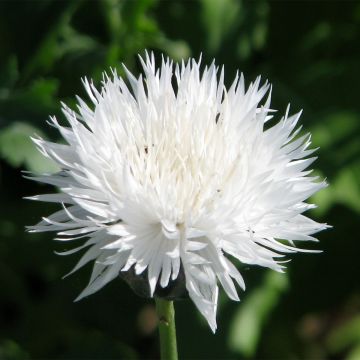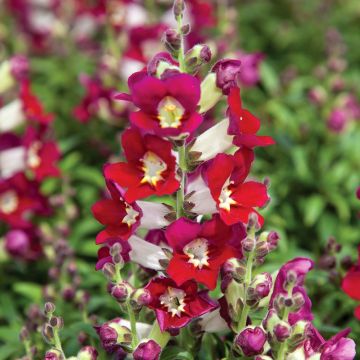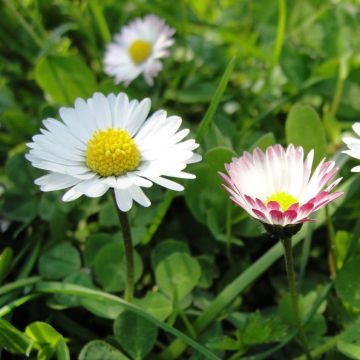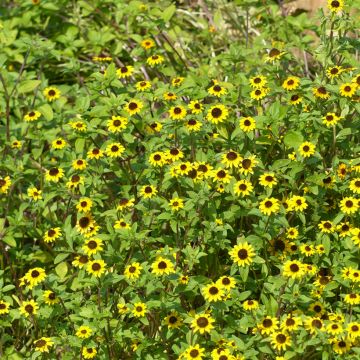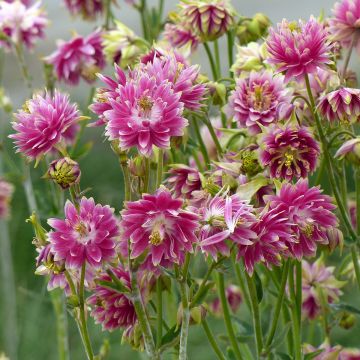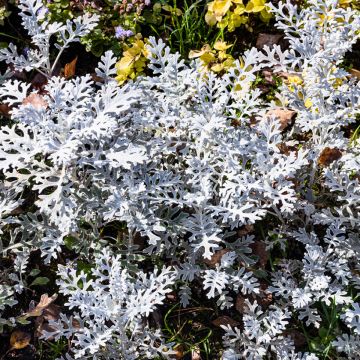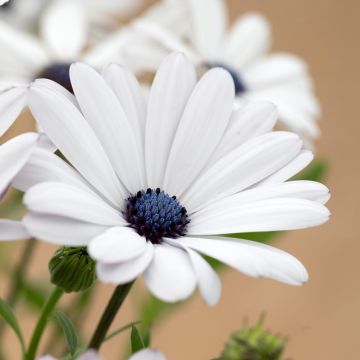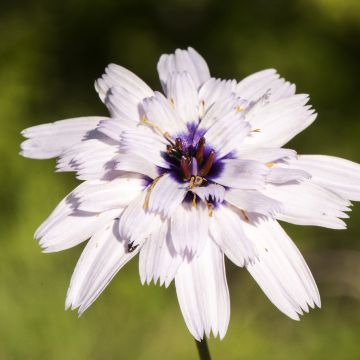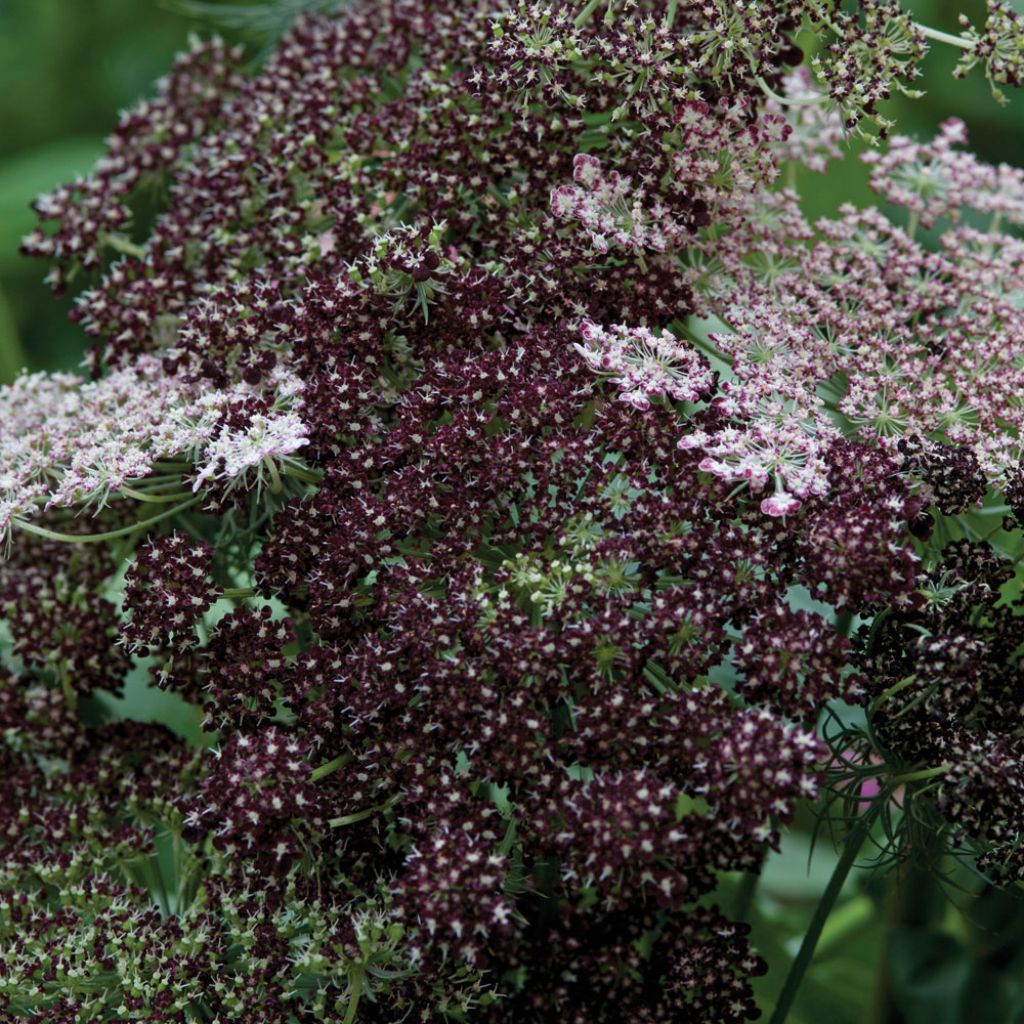

Graines de Daucus carota Dara - Carotte ornementale
Ornamental Carrot Seeds Dara - Daucus carota
Daucus carota Dara
Carrot
Disappointed by the quantity of seeds for the price but I have no doubt the quality will be there, I am more uncertain about my ability to get them to germinate, it will force me to be applied ????
Magali, 06/11/2024
Special offer!
Receive a €20 voucher for any order over €90 (excluding delivery costs, credit notes, and plastic-free options)!
1- Add your favorite plants to your cart.
2- Once you have reached €90, confirm your order (you can even choose the delivery date!).
3- As soon as your order is shipped, you will receive an email containing your voucher code, valid for 3 months (90 days).
Your voucher is unique and can only be used once, for any order with a minimum value of €20, excluding delivery costs.
Can be combined with other current offers, non-divisible and non-refundable.
Home or relay delivery (depending on size and destination)
Schedule delivery date,
and select date in basket
This plant carries a 6 months recovery warranty
More information
We guarantee the quality of our plants for a full growing cycle, and will replace at our expense any plant that fails to recover under normal climatic and planting conditions.
Would this plant suit my garden?
Set up your Plantfit profile →
Description
How curious it seems to associate the name 'carrot' with the epithet 'ornamental'. However, it is a particularly adorable variety, Daucus carota 'Dara', also known as ornamental carrot, that is being discussed here. It offers an unpredictable flowering of airy and radiant umbels throughout the summer, made up of countless deep pink-purple stars gradually opening up to pale pink, and then white from the edge of the inflorescence towards its center. This tall annual plant is fantastic for cut flowers, fresh or dried. It will blend into flower beds, lightening the abundant flowering of perennials, in well-drained soil and in the sun.
The wild ancestor of the cultivated carrot is native to Iran, a country that remains the center of diversity for the wild species known as Daucus carota. This plant belongs to the Apiaceae family. It germinates, grows, and flowers within two years. In the first year, this plant develops a deep and fibrous taproot that can sometimes be very long. It produces very fine foliage forming a feathery tuft in spring. In the second year, from June to September, depending on the sowing date, stems of 70 cm (27.6 in) in height emerge from the foliage, bearing beautiful umbels made up of a multitude of small flowers. These inflorescences, both flat and rounded, are bloomed in a gradient of deep pink-purple to white, transforming the plant into a range of pink and white. The plant easily self-seeds in well-drained soil, although not always faithfully.
'Dara' carrot is one of those irreplaceable annuals that instantly create a decor and enhance all the surrounding plants. It will thrive in sunny flower beds or in the vegetable garden, enriching the supply of flowers for bouquets. Create a lovely original scene in a rockery by mixing it with blue-flowered honeywort (Cerinthe major 'Purpurescens'), striped blue-eyed grass (Sisyrinchium striatum), and ornamental garlic. It is also a perfect plant for slightly wild areas of the garden or natural flower beds.
Wild carrot mobilizes certain heavy metals such as mercury in its root. It can play a useful role in phyto-depollution, in synergy with other plants such as burdock and dock, for example.
Report an error about the product description
Flowering
Foliage
Plant habit
Botanical data
Daucus
carota
Dara
Apiaceae
Carrot
Cultivar or hybrid
Other Thompson and Morgan seeds
View all →Planting and care
Sowing period
Intended location
-
, onOrder confirmed
Reply from on Promesse de fleurs
Haven't found what you were looking for?
Hardiness is the lowest winter temperature a plant can endure without suffering serious damage or even dying. However, hardiness is affected by location (a sheltered area, such as a patio), protection (winter cover) and soil type (hardiness is improved by well-drained soil).

Photo Sharing Terms & Conditions
In order to encourage gardeners to interact and share their experiences, Promesse de fleurs offers various media enabling content to be uploaded onto its Site - in particular via the ‘Photo sharing’ module.
The User agrees to refrain from:
- Posting any content that is illegal, prejudicial, insulting, racist, inciteful to hatred, revisionist, contrary to public decency, that infringes on privacy or on the privacy rights of third parties, in particular the publicity rights of persons and goods, intellectual property rights, or the right to privacy.
- Submitting content on behalf of a third party;
- Impersonate the identity of a third party and/or publish any personal information about a third party;
In general, the User undertakes to refrain from any unethical behaviour.
All Content (in particular text, comments, files, images, photos, videos, creative works, etc.), which may be subject to property or intellectual property rights, image or other private rights, shall remain the property of the User, subject to the limited rights granted by the terms of the licence granted by Promesse de fleurs as stated below. Users are at liberty to publish or not to publish such Content on the Site, notably via the ‘Photo Sharing’ facility, and accept that this Content shall be made public and freely accessible, notably on the Internet.
Users further acknowledge, undertake to have ,and guarantee that they hold all necessary rights and permissions to publish such material on the Site, in particular with regard to the legislation in force pertaining to any privacy, property, intellectual property, image, or contractual rights, or rights of any other nature. By publishing such Content on the Site, Users acknowledge accepting full liability as publishers of the Content within the meaning of the law, and grant Promesse de fleurs, free of charge, an inclusive, worldwide licence for the said Content for the entire duration of its publication, including all reproduction, representation, up/downloading, displaying, performing, transmission, and storage rights.
Users also grant permission for their name to be linked to the Content and accept that this link may not always be made available.
By engaging in posting material, Users consent to their Content becoming automatically accessible on the Internet, in particular on other sites and/or blogs and/or web pages of the Promesse de fleurs site, including in particular social pages and the Promesse de fleurs catalogue.
Users may secure the removal of entrusted content free of charge by issuing a simple request via our contact form.
The flowering period indicated on our website applies to countries and regions located in USDA zone 8 (France, the United Kingdom, Ireland, the Netherlands, etc.)
It will vary according to where you live:
- In zones 9 to 10 (Italy, Spain, Greece, etc.), flowering will occur about 2 to 4 weeks earlier.
- In zones 6 to 7 (Germany, Poland, Slovenia, and lower mountainous regions), flowering will be delayed by 2 to 3 weeks.
- In zone 5 (Central Europe, Scandinavia), blooming will be delayed by 3 to 5 weeks.
In temperate climates, pruning of spring-flowering shrubs (forsythia, spireas, etc.) should be done just after flowering.
Pruning of summer-flowering shrubs (Indian Lilac, Perovskia, etc.) can be done in winter or spring.
In cold regions as well as with frost-sensitive plants, avoid pruning too early when severe frosts may still occur.
The planting period indicated on our website applies to countries and regions located in USDA zone 8 (France, United Kingdom, Ireland, Netherlands).
It will vary according to where you live:
- In Mediterranean zones (Marseille, Madrid, Milan, etc.), autumn and winter are the best planting periods.
- In continental zones (Strasbourg, Munich, Vienna, etc.), delay planting by 2 to 3 weeks in spring and bring it forward by 2 to 4 weeks in autumn.
- In mountainous regions (the Alps, Pyrenees, Carpathians, etc.), it is best to plant in late spring (May-June) or late summer (August-September).
The harvesting period indicated on our website applies to countries and regions in USDA zone 8 (France, England, Ireland, the Netherlands).
In colder areas (Scandinavia, Poland, Austria...) fruit and vegetable harvests are likely to be delayed by 3-4 weeks.
In warmer areas (Italy, Spain, Greece, etc.), harvesting will probably take place earlier, depending on weather conditions.
The sowing periods indicated on our website apply to countries and regions within USDA Zone 8 (France, UK, Ireland, Netherlands).
In colder areas (Scandinavia, Poland, Austria...), delay any outdoor sowing by 3-4 weeks, or sow under glass.
In warmer climes (Italy, Spain, Greece, etc.), bring outdoor sowing forward by a few weeks.






























